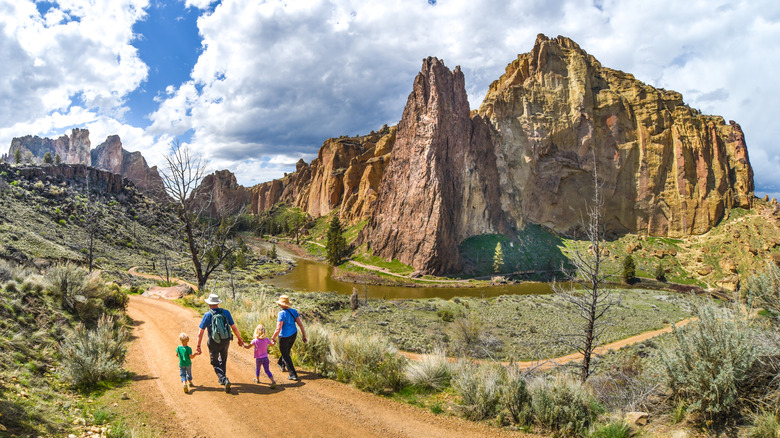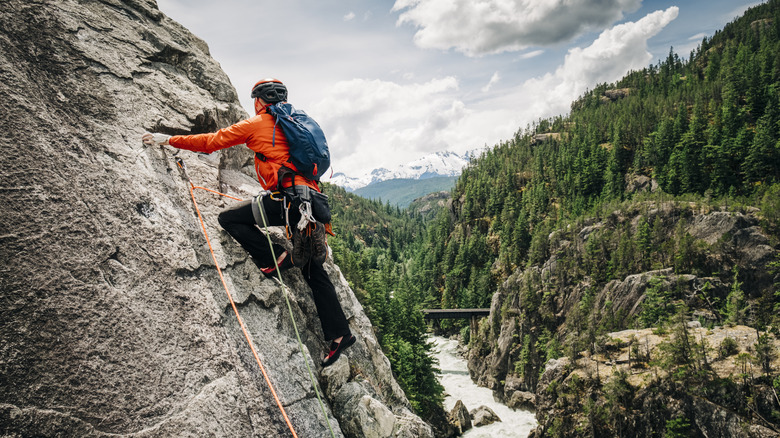What The New EXPLORE Act Means If You Hike, Bike, Or Climb In The Great American Outdoors
The signing of the Expanding Public Lands Outdoor Recreation Experiences (EXPLORE) Act into law on January 4, 2025, by President Biden marked a transformative moment for outdoor recreation in the United States. This bipartisan legislation, advocated for by Natural Resources Committee Chairman Bruce Westerman and Ranking Member Raúl Grijalva, represents about a decade of dedicated effort. It is the first law of its kind to prioritize equitable access to public lands, breaking down barriers that have historically limited opportunities for veterans, people with disabilities, and underserved communities.
The EXPLORE Act is a response to the mounting evidence that access to nature is vital for mental health and well-being, especially in the wake of the COVID-19 pandemic. Since the pandemic, visits to national and state parks and local outdoor spaces have surged, highlighting the deep connection Americans feel to green spaces and the wilderness. Yet, not all communities share equal access. Over 100 million Americans, including 28 million children, lack a park within a 10-minute walk of their homes (via Trust for Public Land). This disparity underscores the urgency of creating accessible outdoor opportunities for all.
This landmark legislation also underscores the critical economic role of the outdoor recreation industry, which generates $1.1 trillion in annual economic output and supports over 5 million jobs. The EXPLORE Act is not only a win for the environment but also for the communities and businesses that depend on it, making this a monumental achievement for the nation's outdoor legacy.
What the EXPLORE Act does
At its core, the EXPLORE Act seeks to modernize and expand access to public lands while ensuring the sustainability of outdoor recreation. This legislation encompasses a wide variety of initiatives designed to foster inclusivity and improve outdoor experiences. A significant component of the act is the Outdoor Recreation Legacy Partnership (ORLP) program, which is now permanently established. This program provides critical funding to create and improve parks, trails, and green spaces in underserved urban neighborhoods. By addressing the historical lack of investment in these communities, the EXPLORE Act empowers residents to connect with nature in ways that were previously out of reach.
The legislation also introduces measures to improve infrastructure and streamline processes for outfitters and guides who facilitate outdoor experiences. By simplifying permitting systems and reducing financial barriers, the act ensures that outdoor recreation businesses can thrive while helping more people access the outdoors. Additionally, the act invests in modernizing technology at recreation sites, such as increasing broadband connectivity and offering digital recreation passes, making outdoor experiences more sustainable, accessible, and convenient for all. Other key provisions include improving outdoor experiences for veterans and individuals with disabilities by crafting more accessible outdoor spaces, trails, and campgrounds — and through creating more opportunities like fishing, hunting, and boating.
What the EXPLORE Act means for hikers, bikers, and climbers
For outdoor enthusiasts, the EXPLORE Act is a game changer. Hikers, bikers, and climbers can look forward to expanded opportunities and improved access to some of the country's most breathtaking landscapes. The legislation's emphasis on creating and maintaining trails means more opportunities to explore nature responsibly and sustainably. Hikers will benefit from the development of new trails and the maintenance of existing ones, ensuring safe and enjoyable experiences. The act's allocation for broadband connectivity and digital passes will make planning trips more straightforward, reducing barriers for those venturing into remote areas, like this Instagram-worthy waterfall deep in the Grand Canyon.
Cyclists stand to gain significantly from the BOLT Act, which identifies and establishes at least 10 new long-distance bike trails and at least 10 areas for building more of these trails. These trails will be mapped, signed, and promoted to encourage biking as a sustainable and enjoyable form of outdoor recreation. With these developments, bikers can explore new regions while benefitting from well-maintained infrastructure and resources.
Climbers, too, will see lasting benefits from the PARC Act, which formally recognizes recreational climbing as an appropriate activity within wilderness areas. This legislation protects the right to climb, including the use of fixed anchors, ensuring that future generations can continue to enjoy these challenging and rewarding experiences. Public participation in the decision-making process regarding climbing areas further highlights the act's commitment to inclusivity.
Perhaps more importantly, the EXPLORE Act underscores the belief that nature belongs to everyone. By addressing disparities in access and fostering inclusivity, the legislation reaffirms the importance of outdoor spaces for mental health, community connection, and personal growth. Whether you're on one of the best hikes in Oregon or escaping New York City for mountain views and river floats, remember the EXPLORE Act with gratitude.


